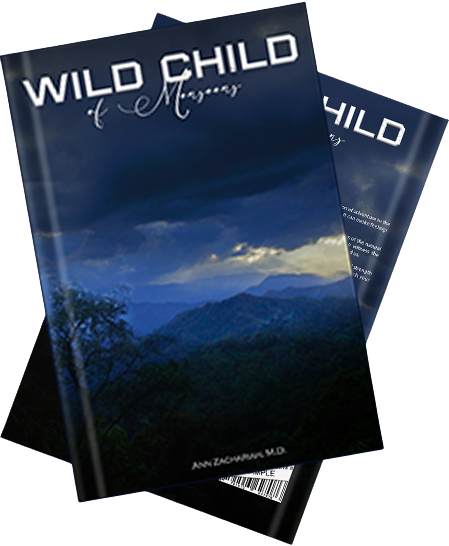Finding solace and transformation for the mind can be challenging in a world filled with distractions, stresses, and constant digital bombardment. However, one timeless and endlessly rewarding practice stands out as a beacon of enlightenment and mental empowerment: reading. Beyond mere entertainment, reading is a form of therapy for the mind, a technique known as bibliotherapy. In this blog, we will delve into the profound effects of reading on mental health and well-being and explore how the book is empowering minds therapy, fosters resilience, and nourishes the soul.
Empowering Minds Therapy Helps You Achieve Full Potential
The Healing Art of Bibliotherapy
Bibliotherapy, using literature to promote mental well-being and personal growth, has been a recognized form of therapy for decades. Readers can gain insights into their own lives, struggles, and triumphs by exploring characters, narratives, and the human condition. The therapeutic power of books lies in their ability to offer perspectives, comfort, and guidance. Often leading to emotional healing and personal transformation.
Empowering Minds
One of the most remarkable aspects of reading is its capacity to introduce us to diverse perspectives, cultures, and experiences. As we immerse ourselves in the pages of a book, we step into the shoes of characters from various walks of life, learning about their challenges, joys, and growth. This exposure to diverse narratives broadens our empathy, understanding, and perspective. Moreover, empowers us to navigate a complex and interconnected world with greater wisdom and compassion.
Stress Reduction and Relaxation
The act of reading can be a soothing and stress-reducing ritual in itself. Sitting down with a book, turning the pages, and becoming engrossed in a story can serve as a form of meditation. However, temporarily disconnecting us from the pressures of daily life. The calming effect of reading helps reduce stress hormones, lower blood pressure, and promote relaxation. Although, fostering a sense of well-being and mental empowerment.
Building Resilience through Adversity
Great literature often explores the theme of resilience in the face of adversity. Readers witness characters overcoming seemingly insurmountable challenges, and in doing so, they gain inspiration and insights into their struggles. Reading stories of resilience empowers individuals to face life’s hardships with courage and determination. However, reminding them that strength can be found even in the most trying circumstances.
Also read:- Discover the Pink Sapphire Gemstone: Significance, Power, Facts, and Healing Properties
Fostering Imagination and Creativity
Reading stimulates the imagination like no other medium. When we read, we must actively engage our minds to visualize scenes, characters, and settings. This mental exercise strengthens the brain and nurtures creativity and innovation. As readers embark on journeys through the realms of imagination, they discover the limitless potential of their creative minds. Therefore, empowering them to think outside the box and envision new possibilities.
Self-Reflection and Personal Growth
Books often serve as mirrors, reflecting aspects of ourselves, our desires, and our flaws. Through the characters’ experiences and introspections, readers are prompted to engage in their self-reflection. This process of self-discovery can be both empowering minds therapy and transformative, helping individuals gain a deeper understanding of themselves, their motivations, and their growth potential.
Expanding Vocabulary
Reading is an excellent way to expand vocabulary and enhance communication skills. Exposure to diverse writing styles and linguistic nuances improves language comprehension and expression. Enhanced communication skills empower individuals to articulate their thoughts, ideas, and feelings more effectively. However, leading to greater self-assurance and the ability to connect with others more profoundly.
Emotional Intelligence
Literature often delves into complex emotions and interpersonal relationships, allowing readers to explore the depths of human feelings. This exploration nurtures empathy and emotional intelligence, enabling individuals to understand better and connect with the emotions of others. As a result, they become more adept at navigating the complexities of human relationships, both personally and professionally.
Encouraging Lifelong Learning
The quest for knowledge is a lifelong journey, and reading is a fundamental tool. Books provide access to a wealth of information, insights, and wisdom from experts in various fields. The empowerment of continuous learning is immeasurable, as it equips individuals with the knowledge and skills needed to adapt to changing circumstances and seize new opportunities.
Inspiring Action and Empowerment
Many great books are not only entertaining but also inspiring. They motivate readers to take action, follow their dreams, and effect positive change in their lives. Inspirational literature catalyzes personal empowerment, encouraging individuals to set goals, overcome obstacles, and pursue their passions with determination and enthusiasm.
Exploring Human Nature
Fictional narratives serve as a rich tapestry of human experiences. However, it enables readers to delve into the complexities of human nature, relationships, and emotions. Novels often feature characters who undergo significant development and transformation throughout the story. Moreover, mirroring the personal growth journeys that readers themselves may aspire to undertake. As readers immerse themselves in the lives and dilemmas of fictional characters. However, they gain insights into their potential for personal development and transformation. Whether following the hero’s journey of self-discovery or empathizing with the struggles of relatable protagonists. Although, fiction offers a unique therapeutic benefit by inviting readers to explore the human condition and their capacity for growth and resilience.
Self-Help and Psychology
Self-help and psychology books are invaluable resources for those seeking practical tools and strategies for self-improvement and mental well-being. These genres empower readers to identify life challenges, set meaningful goals, and implement positive changes. Whether managing stress, improving communication skills, or fostering resilience, self-help and psychology books offer evidence-based advice and actionable insights. Readers can apply the principles they learn daily, addressing personal hurdles and unlocking their growth potential. The therapeutic benefit of these genres lies in their ability to provide both understanding and tangible solutions. Moreover, guiding individuals toward a path of empowerment and self-discovery.
Set Aside Dedicated Reading Time
One of the fundamental steps in establishing your personal bibliotherapy practice is to set aside dedicated reading time. In the hustle and bustle of daily life, it’s easy to let reading fall by the wayside. However, allocating specific times for assignments ensures that you prioritize mental nourishment. Whether carving out a few minutes before bedtime to unwind with a book or dedicating a weekend afternoon to immersive reading. However, creating a routine for reading fosters consistency and allows you to reap the therapeutic benefits of this practice. By making reading a deliberate part of your daily or weekly schedule. However, you invest in your mental well-being and cultivate a lifelong habit of learning and self-care.
Choose Books Mindfully
The choices you make in selecting reading material play a significant role in the therapeutic value of your bibliotherapy practice. Choosing books mindfully is essential, considering your current needs and interests. Are you seeking inspiration to overcome a specific challenge? Furthermore, guidance for personal growth, or simply a relaxing escape from daily stresses? Whatever your objectives, there’s a book suited to your purpose. By aligning your reading choices with your intentions, you maximize the therapeutic impact of your reading practice. Thoughtful book selection ensures that you engage with content that resonates with you. Although, making your reading experience more meaningful and enriching.
Journal Your Insights
Keeping a reading journal is a practice that deepens the therapeutic benefits of reading. As you engage with the content of books, jot down your thoughts, reflections, and insights. Journaling enhances self-awareness and introspection, allowing you to connect more profoundly with your reading material. It’s a personal dialogue with the text, where you can explore your emotional reactions. Moreover, ponder the relevance of the content to your life, and record the lessons or wisdom you derive from the pages. Over time, your reading journal becomes a treasure trove of personal insights and reflections. Therefore, it is serving as a testament to your journey of growth and empowerment through literature.
Conclusion
In conclusion, reading is a timeless and potent form of empowering minds therapy, nurtures resilience, and enriches the soul. By exploring diverse narratives, self-reflection, and continuous learning, individuals can harness the transformative power of literature to navigate life’s challenges. Further, cultivate personal growth and find solace in the pages of a book. Whether through fiction, self-help, philosophy, or any other genre, the journey of bibliotherapy is lifelong. Moreover, offering endless opportunities for empowerment and enrichment. So, embrace the therapeutic practice of reading and embark on a lifelong journey of self-discovery and empowerment through the written word.





